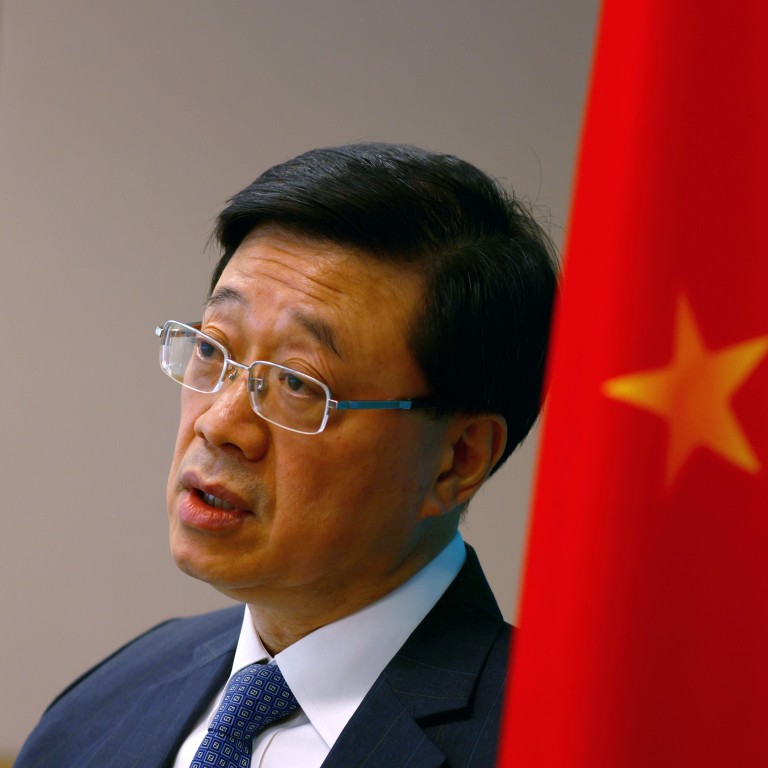
Hong Kong Chief Secretary John Lee to lead vetting committee for would-be election candidates
- The former security chief will be joined by constitutional affairs chief Erick Tsang, security secretary Chris Tang and home affairs minister Caspar Tsui
- Three unofficial members – former justice secretary Elsie Leung, ex-Legco president Rita Fan and one-time university president Lawrence Lau – round out the committee
Analysts said the line-up reflected the central government’s determination to guarantee that future Hong Kong polls would be watertight in keeping out candidates holding anti-China views.
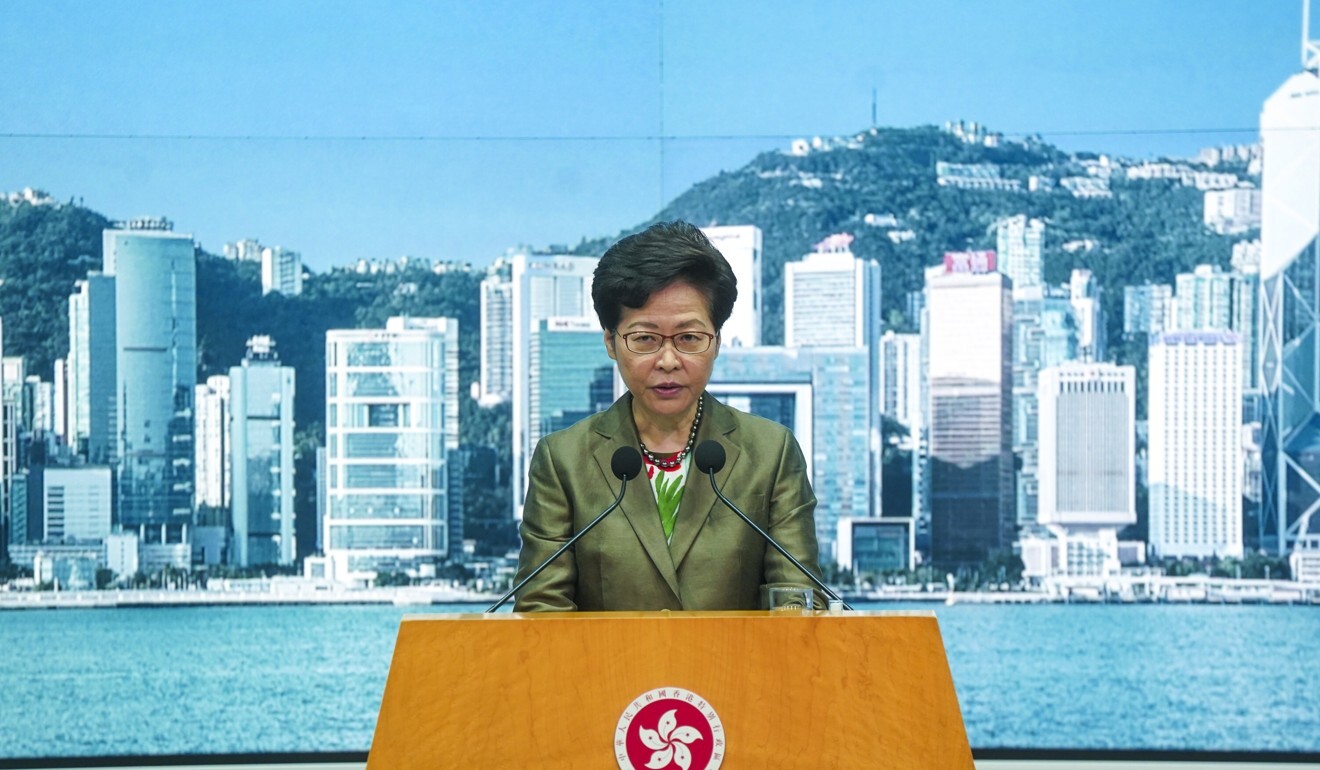
A trio of pro-Beijing heavyweights – former justice secretary Elsie Leung Oi-sie, ex-Legislative Council president Rita Fan Hsu Lai-tai and former Chinese University of Hong Kong president Lawrence Lau Juen-yee – have been chosen as the committee’s unofficial members.
“They are loyal to the country, responsible and committed to society,” Lam said, stressing the three had no political party affiliations and were of “high social standing”.
A year under the national security law: arrests, sanctions, and a swifter Legco
Leung was previously a vice-chairwoman of the Basic Law Committee, which advises China’s top legislative body – the National People’s Congress (NPC) Standing Committee – on the city’s mini-constitution.
She vowed on Tuesday to perform her new job based on the relevant legislation and “regardless of whether the candidate is a pan-democratic member”.
Fan, an ex-local delegate to the NPC Standing Committee, also said people of all political affiliations could run for office, “unless they were supporters of Hong Kong independence”.
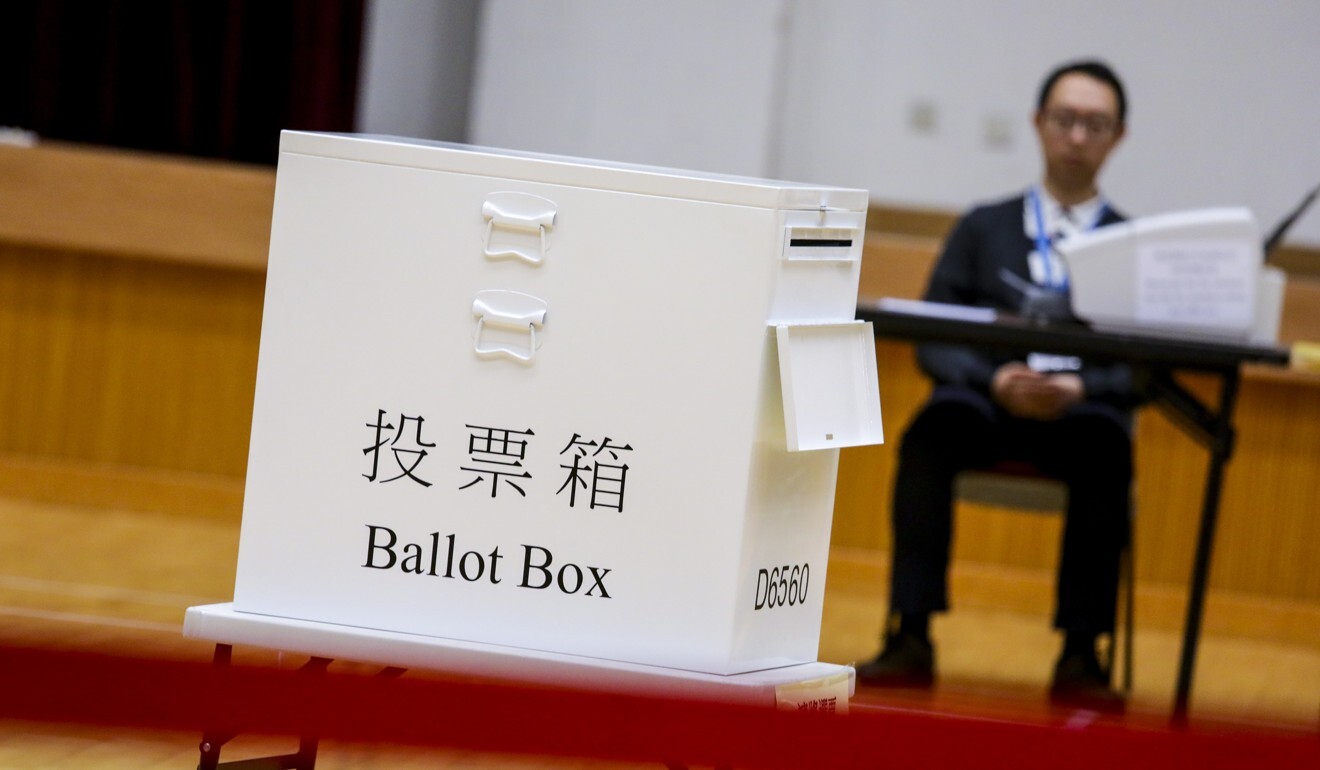
Lau Siu-kai, vice-chairman of the semi-official think tank the Chinese Association of Hong Kong and Macau Studies, said the three chosen pro-Beijing veterans were senior politicians with little ambition to further their careers, allowing them to put serving the country ahead of their own interests.
“Beijing is taking a tough and prudential attitude in screening candidates,” the think tank vice-chairman said.
“None of those in the opposition camp, including those from the Democratic Party and Civic Party, which carry an anti-China attitude, will be allowed to participate in future elections.”
Hong Kong electoral changes: lawmakers approve bill overhauling political system
Chinese University’s Ivan Choy Chi-keung said political loyalty had emerged as the top priority for staffing the vetting committee, leading to the exclusion of all liberal voices.
“Everyone in the committee must be approved by Beijing, and maybe this could also tell us why former chief secretary Matthew Cheung [Kin-chung] had to step down before the vetting committee was formed, as he might not be seen as completely trustworthy and loyal in Beijing’s eyes,” the political scientist said.
Choy, however, said he believed it was too early to say whether it was impossible for anyone from the opposition camp to pass the vetting process, with Beijing potentially still willing to engage with pan-democrats closer to the elections.
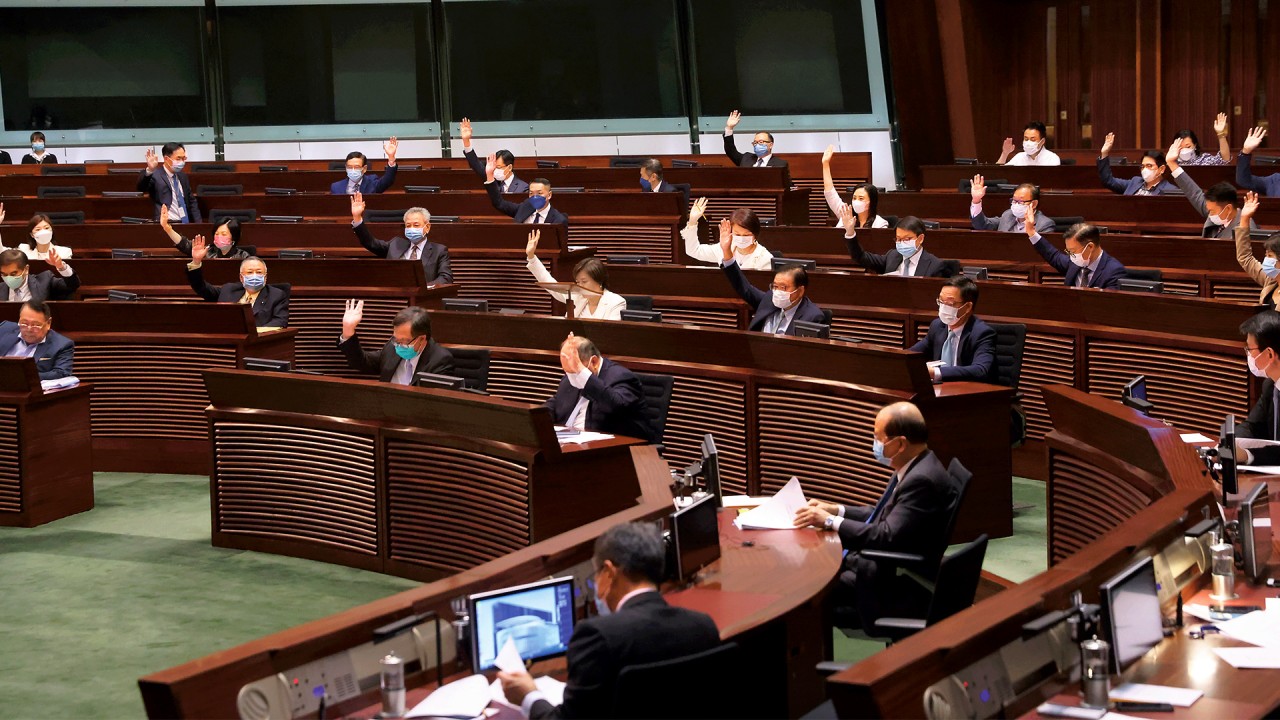
00:25
Hong Kong Legco approves Beijing’s political overhaul including ‘patriot’ rule
Lo Kin-hei, chairman of the city’s largest opposition group, the Democratic Party, said it made no difference who was appointed to serve on the committee because the final decision would be on the recommendation of the Committee for Safeguarding National Security, chaired by the city’s leader.
Civic Party chairman Alan Leong Kah-kit said the selections had left him “speechless”.
Security chief Tang pledged on Tuesday to objectively assess candidates, even though some might have criticised him and the police force he used to lead.
“It doesn’t pose any conflict with my role in the vetting committee. We will do our job fairly and impartially and will not be affected by anything that happened in the past,” Tang said.
Powerful group vetting Hong Kong candidates to have ‘fewer than 10 members’
In a statement, a government spokesman said the new committee would take advice from police’s National Security Department, as well as a commission led by Lam and supervised by Beijing, before making a decision on a candidate’s eligibility.
The vetting committee was proposed by Beijing in March as part of its plan to overhaul Hong Kong’s electoral system to ensure only patriots held key positions of political power.
The body will be charged with screening out candidates for the chief executive, Legco or Election Committee polls deemed “unpatriotic” or threatening to national security.
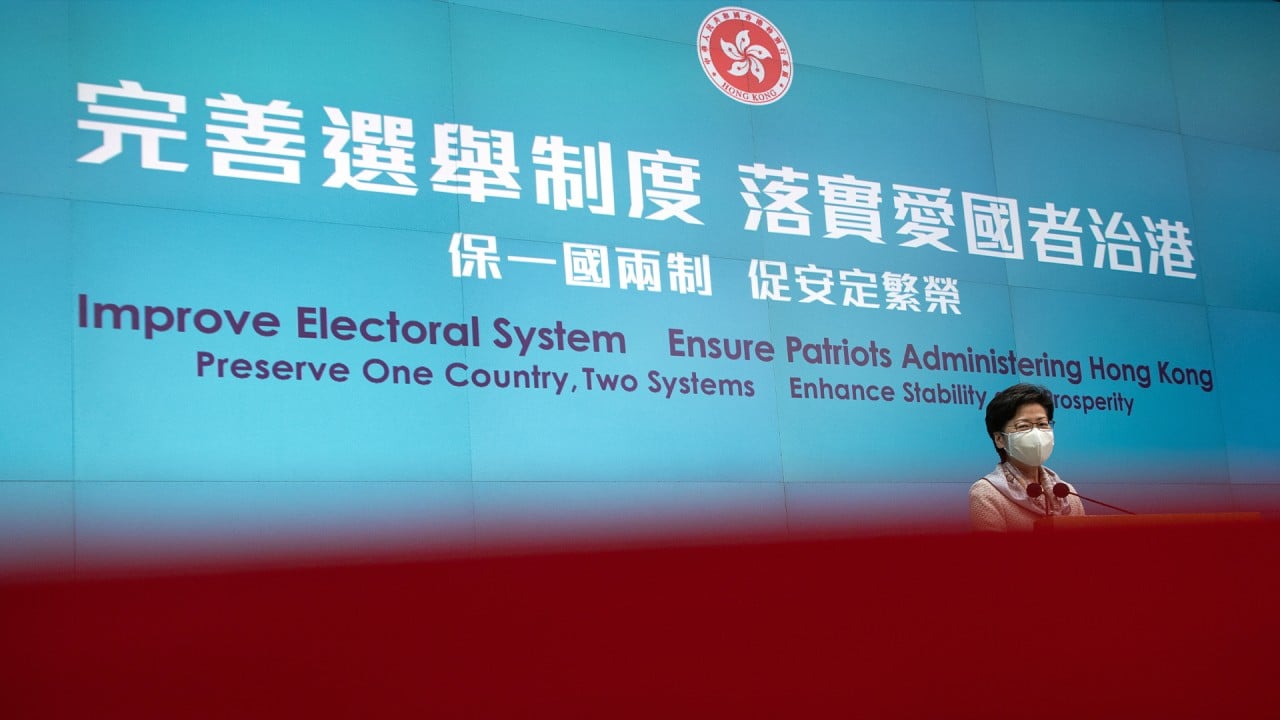
02:34
China’s top legislative body passes sweeping Hong Kong electoral reforms
Separately, Lam on Tuesday said more than 9,300 people – from some 10,000 eligible voters – had so far registered to take part in the September 19 process for filling the 1,500-strong membership of the Election Committee.
Lam said the number of registrations proved the “revamped electoral system has a broad representation and is supported by voters”.
The number of eligible voters has been drastically cut from 2016, when a 246,400-strong electorate could pick their representatives for the body.
Under Beijing’s electoral shake-up, the membership of the Election Committee, previously only tasked with picking the city’s leader, has been expanded from 1,200 to 1,500.
The body is now also empowered to nominate hopefuls for the legislature and field representatives of their own.
The Legco polls are scheduled for December, followed by the chief executive contest next March.
The Post earlier found that more than two-thirds of representatives sitting on the reformed Election Committee had either already been appointed by the authorities or would be hand-picked by pro-establishment chambers or groups.
Additional reporting by Christy Leung


